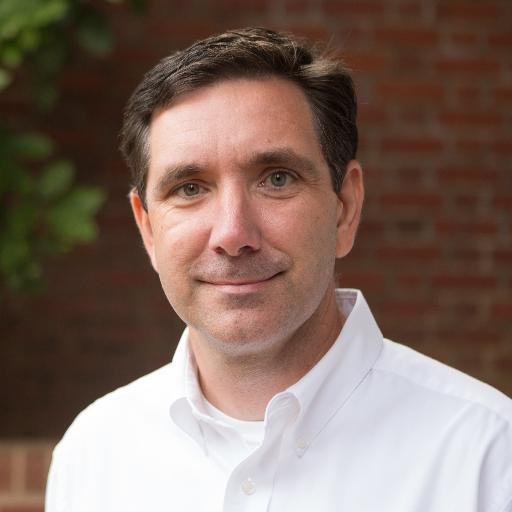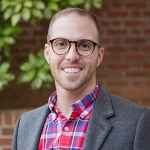What’s the best book you’ve read this year? We posed this question to our Intersect contributors, and we’ll share their recommendations over the coming weeks. (Read list 1.)
Today, Southeastern Seminary professors highlight books on racism, public discourse, theology and more — from authors Charles Taylor, Eugene Peterson, Neil Postmasn, Thomas J. Holmes and Rod Dreher.
Editor’s Note: You can download two Intersect-exclusive ebooks from Bruce Ashford for free. Details>>
Ashes for Breakfast: A Diary of Racism in the American Church
by Thomas J. Holmes (Judson Press, 1969)
 Brent Aucoin: My favorite book I read this year is an old one. It is Ashes for Breakfast: A Diary of Racism in an American Church by an alumnus of SEBTS, Thomas J. Holmes. Holmes was the pastor of the Tattnall Square Baptist Church on the edge of the campus of Mercer University in Macon, Georgia, in the early 1960s. In the book he tells the story of his experience in unsuccessfully trying to lead the church to accept a black person into membership of the church.
Brent Aucoin: My favorite book I read this year is an old one. It is Ashes for Breakfast: A Diary of Racism in an American Church by an alumnus of SEBTS, Thomas J. Holmes. Holmes was the pastor of the Tattnall Square Baptist Church on the edge of the campus of Mercer University in Macon, Georgia, in the early 1960s. In the book he tells the story of his experience in unsuccessfully trying to lead the church to accept a black person into membership of the church.
In this particular case, the black person seeking to join the church was an African who had been converted by missionaries who had been sent to Ghana by the church. He was the first person of color to be admitted into Mercer University, but when he sought to join the church which had sent the gospel to his village in Ghana, the congregation not only refused but also fired its pastor, Thomas Holmes. The book was published by Judson Press back in 1969.
Amusing Ourselves to Death: Public Discourse in the Age of Show Business
by Neil Postman (Penguin Books, 1985)
 Todd Borger: I did not read this book when it came out in 1985, but I came across a copy of it at the public library and finally decided to see what he said that was so important. I was surprised at the depth contained in this short book. Postman sweeps through American history and traces the development of discourse in four areas—politics, religion, education and advertising—to show the drastic downgrade in the level of public discourse in these areas.
Todd Borger: I did not read this book when it came out in 1985, but I came across a copy of it at the public library and finally decided to see what he said that was so important. I was surprised at the depth contained in this short book. Postman sweeps through American history and traces the development of discourse in four areas—politics, religion, education and advertising—to show the drastic downgrade in the level of public discourse in these areas.
His book, coming as it did in 1985, was prophetic, but unfortunately not prophetic in way that Elijah was when he defeated the prophets of Baal at Carmel, but more like Jeremiah when he preached to Jerusalem warning the inhabitants of the Babylonian invasion and advising them that there was nothing they could do to avoid disaster. Reading Postman’s book more than 30 years after its publication, one realizes that instead of heeding his message, we doubled and tripled down on our efforts to make things worse.
Christ Plays in Ten Thousand Places: A Conversation in Spiritual Theology
by Eugene Peterson (Eerdmans, 2008)

Benjamin Quinn: I don’t know why I hadn’t read this book before, but I’m grateful to have read it this summer. Its pastoral approach, though theologically engaging and thoughtful, proved stimulating and life-giving.
Further, its focus on spiritual theology with attention to fertile intersections such as vocation, place, community, sabbath and practical pastoral concerns have challenged me personally, enriched my seminary classes and informed my pastoral service. Highly recommended, especially for pastors!
How Dante Can Save Your Life: The Life-Changing Wisdom of History’s Greatest Poem
by Rod Dreher (Regan Arts, 2017)
 Ken Keathley: How Dante Can Save Your Life is actually a spiritual autobiography, in which Rod Dreher tells how Dante’s Divine Comedy was used by God to draw Dreher to Himself.
Ken Keathley: How Dante Can Save Your Life is actually a spiritual autobiography, in which Rod Dreher tells how Dante’s Divine Comedy was used by God to draw Dreher to Himself.
A Secular Age
by Charles Taylor (The Belknap Press, 2007)
 Ivan Spencer: While A Secular Age is challenging to read, Charles Taylor unveils a great number of insights into the dynamics of our secular zeitgeist vis-à-vis the Christian worldview.
Ivan Spencer: While A Secular Age is challenging to read, Charles Taylor unveils a great number of insights into the dynamics of our secular zeitgeist vis-à-vis the Christian worldview.
What is your favorite book of the year? Comment below and let us know!





Comments and Pingbacks
2018-12-12 21:13:18
"The Best Book I Read This Year:" On Liturgy, Conversation, Hospitality, Cancer, Black Dignity | Intersect
[…] What’s the best book you’ve read this year? We posed this question to our Intersect contributors, and we’ll share their recommendations over the coming weeks. (Read list 1 and list 2.) […]
2019-02-04 10:17:03
"The Best Book I Read in 2018": Crisis Leadership, Misreading Scripture, Theological Education, Justice | Intersect
[…] contributors, and we’ve shared their recommendations in recent weeks. (Read list 1, list 2, list 3, list 4, list 5, list 6 and […]